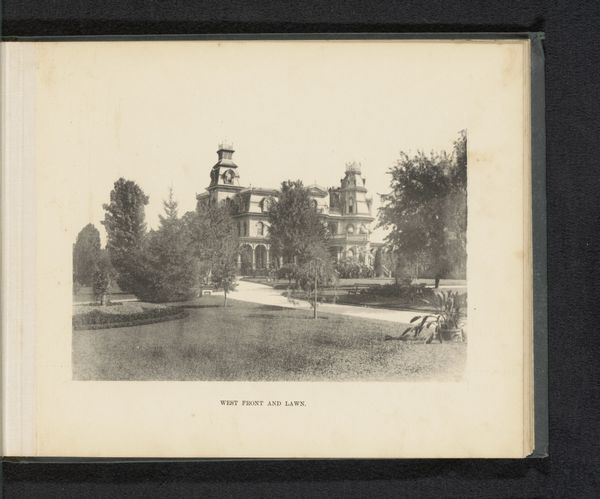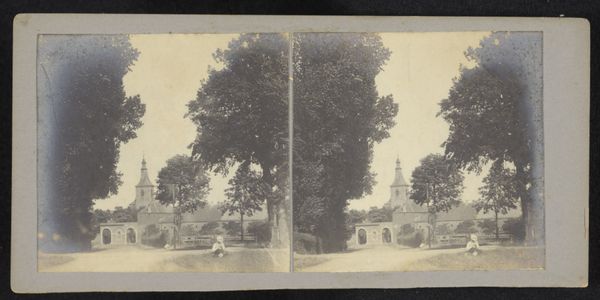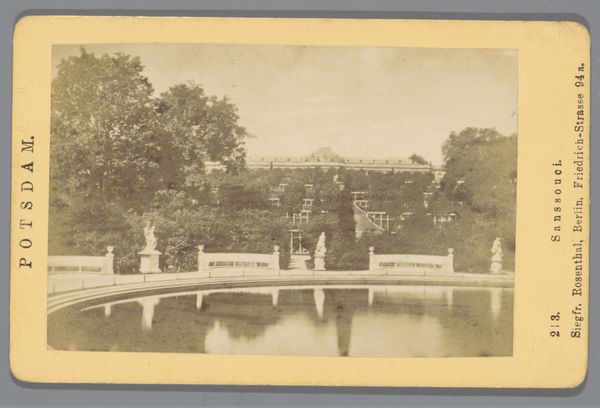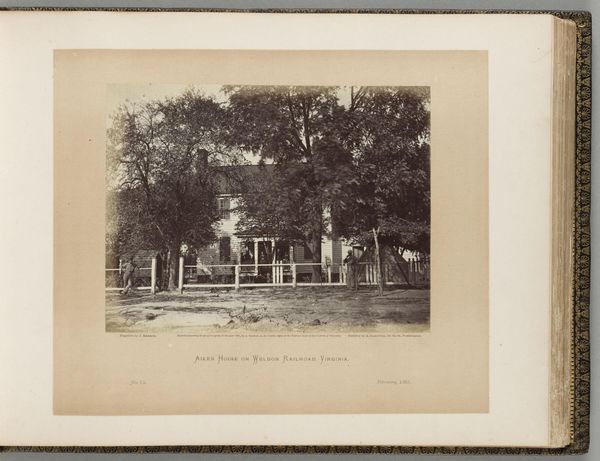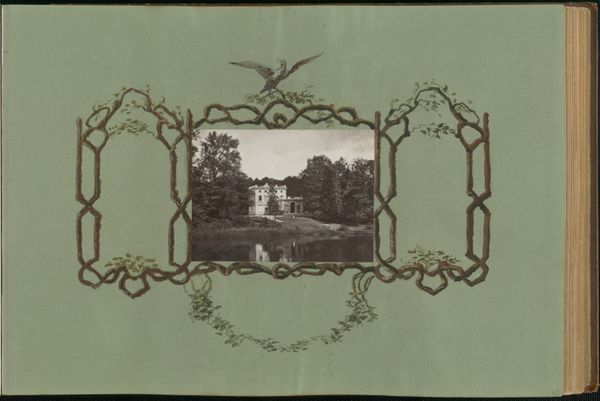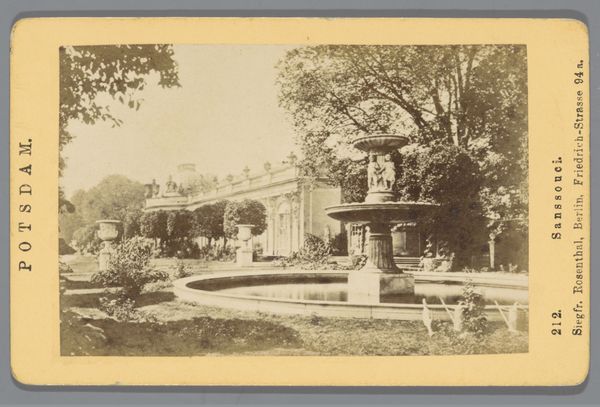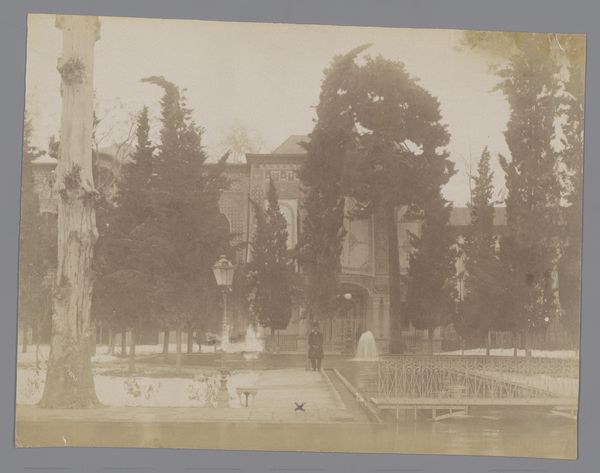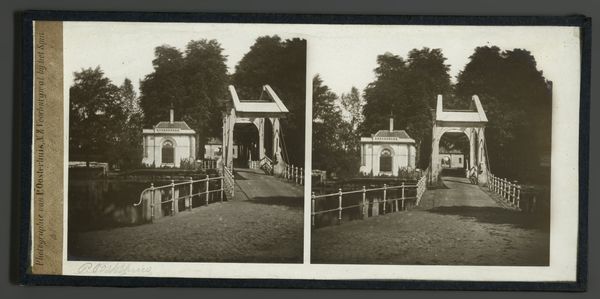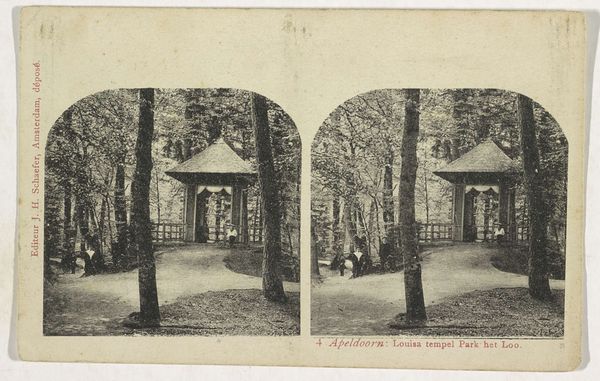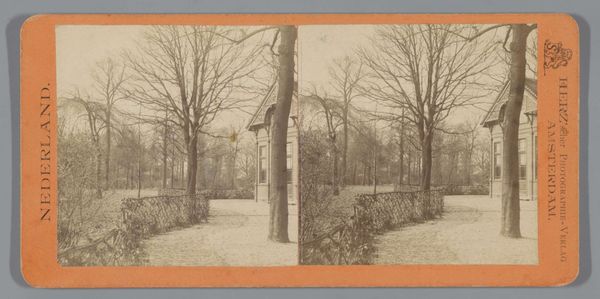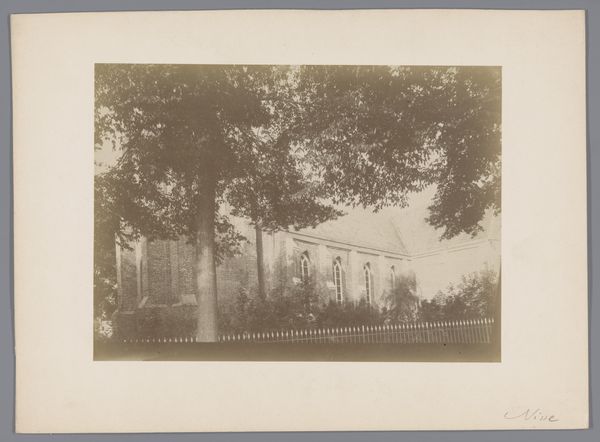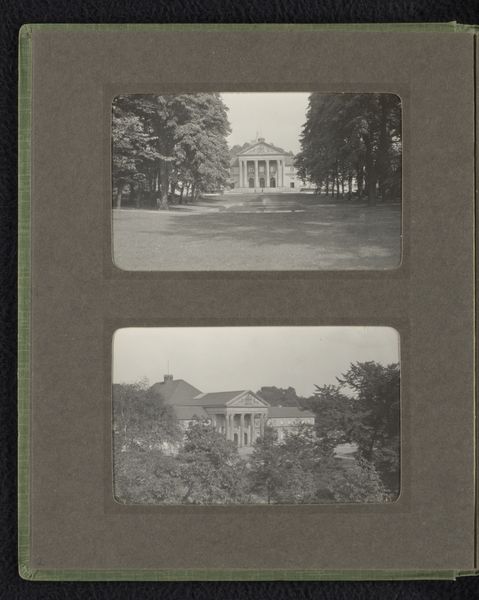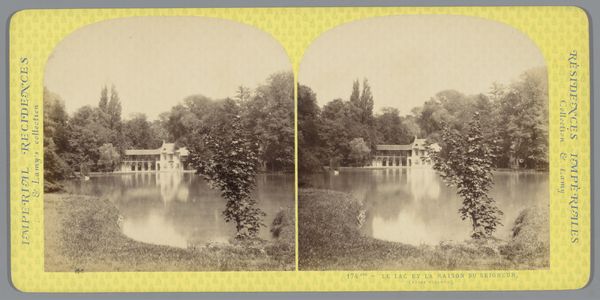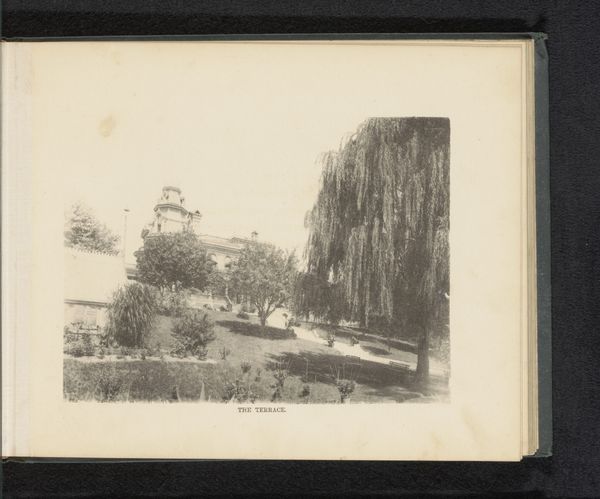
photography
#
photo of handprinted image
#
aged paper
#
toned paper
#
16_19th-century
#
water colours
#
photography
#
handmade artwork painting
#
coloured pencil
#
watercolour bleed
#
watercolour illustration
#
natural palette
#
watercolor
Dimensions: 8.9 × 7.5 cm (left image); 8.8 × 7.2 cm (right image); 10 × 17.4 cm (card)
Copyright: Public Domain
J.W. and J.S. Moulton made this stereograph, Landscape Avenue, Greenwood Cemetery, sometime in the 1870s in Salem, Massachusetts. Stereographs like this one were viewed through a special viewer, creating a 3D image, and they became a popular form of entertainment in the mid-19th century, offering a glimpse into different places and scenes. What's striking is how this image reflects the cultural attitudes toward death and mourning during the Victorian era. Cemeteries, like Greenwood, were designed as park-like settings, offering a space for contemplation and remembrance. This aestheticization of death served a social function, normalizing grief while also reinforcing social class. The presence of a grand mausoleum in the background, accessible by picturesque walking paths, speaks to the economic status of those interred there. Understanding an image like this requires a close look at the historical context. Archival research into Victorian mourning practices and the development of the American cemetery movement could reveal even more. By examining the historical conditions, we can start to unpack the complex social meanings embedded in this seemingly simple photograph.
Comments
No comments
Be the first to comment and join the conversation on the ultimate creative platform.
